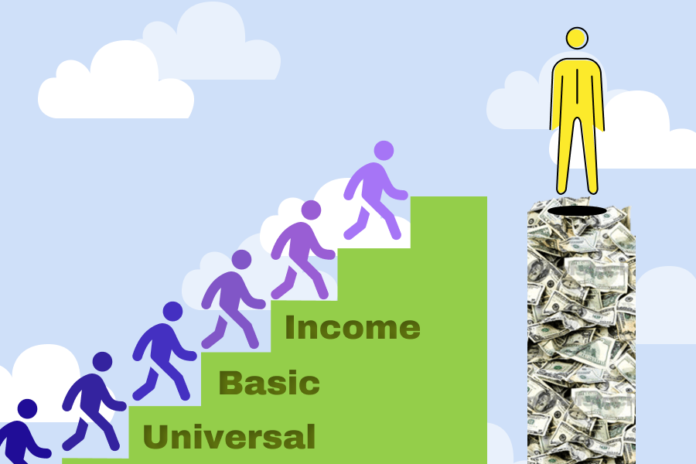As part of project YOBI, families living in poverty and people experiencing homelessness have begun receiving monthly checks from Yolo County
By CHRIS PONCE — city@theaggie.org
The 2020 Census revealed that 28.4% of the people from Yolo County have an income below 150% of the poverty level. The poverty rate in Yolo County is at 20.9%, according to a 2022 press release. Experts and researchers from UC Davis have weighed in on the rising crisis of poverty in Yolo County, emphasizing the need for county action.
Dr. Catherine Brinkley, a faculty member of the College of Agriculture and Environmental Sciences and member of UC Davis Center for Regional Change, weighed in on Yolo’s County’s poverty numbers in regards to the rest of California’s.
“This is critical in California because the Central Valley of California has some of the Nation’s most entrenched poverty levels,” Brinkley said. “Deeper than Appalachia, which is kind of the bench mark of poverty. So if Yolo County, the county with the third highest poverty rate in California, can demonstrate an impact, then there is real hope.”
Jacob Hibel, the co-director for UC Davis’ Center for Poverty & Inequality Research, made a statement via email on the need to address the poverty crisis.
“Even before the Covid-19 pandemic, Yolo County families were struggling economically, with about 1 in 5 households being below the poverty threshold, which is nearly the highest level of any county in California (https://www.ppic.org/publication/poverty-in-california/),” Hibel said via email. “Poverty hurts us all – not just those individuals who are directly experiencing financial hardship — and in that respect, the need to address poverty (and child poverty in particular) is more urgent here in Yolo County than just about anywhere in our state.”
On April 1, the Yolo County Board of Supervisors began sending out monthly income to families in need to address the poverty crisis in the county. The pilot project titled Yolo County Basic Income (YOBI) will oversee monthly checks of $1,200 to $1,500 sent out to families in need. Nolan Sullivan, the Yolo County health and human services agency interim director who has helped run the pilot project, highlighted the differences between YOBI and Universal Basic Income (UBI).
“We’re calling ours more of a TBI,” Sullivan said. “It’s a super targeted basic income pilot.”
While Sullivan referenced the importance of UBI, he said it is important to understand how YOBI differs in its specificity.
“It’s not just like randomly distributing wealth amongst a group of people,” Sullivan said. “We are laser focused on one particular group in Yolo County and really trying to break the rule of generational poverty for some of our most at risk families and youth in Yolo County.”
YOBI will be available for people experiencing homelessness and families on CalWORKS with children under the age of six. The county will determine the amount of money allocated by looking at every individual family’s income and allocating them enough income (on top of the CalWORKS Grant) to put them one dollar above the California Poverty Measure according to Sullivan. The 54 families that fit this criteria have already been identified and have begun receiving monthly payments.
UC Davis will be evaluating studies on the YOBI pilot program in order to determine the long term effects it will have on the county. Some fields that the study will monitor include early childhood development, scalability, stress, education and career attainment, spending trend data, financial literacy and health outcomes, according to Sullivan. Brinkley, who will be heading this study, spoke on the cost-benefit effects this YOBI will have.
“Basic income is just another opportunity to give cash to families, particularly low income families who are facing a whole bunch of different stressors,” Brinkley said. “A lot of the social service programs can be cumbersome for families because you have to re-apply for [them]. A guaranteed program gives these families the flexibility to make different decisions about where they buy food, how they buy food, staying housed [and] childcare.”
Brinkley also responded to criticism that is often made about UBI and direct relief.
“The big fear with programs like this is that families won’t know how to spend the money or they will spend it irresponsibly,” Brinkley said. “That has just not formed out in the studies that have been put out.”
The YOBI Pilot Project is making attempts to bring the poorest families in Yolo County out of poverty over a projected two year duration. Yolo County Supervisor Don Saylor spoke and discussed a timeline of the project and its goals for the future of the county.
“We’ve got the program set up to last until March of 2024,” Saylor said. “So it’s two years of getting the folks to the point where they’re just above the poverty line. So it’s really quite interesting commentary that with Public Assistance Programs people remain in poverty, and in fact it’s so challenging for them to get out of that situation. Because of anything they do, let’s say they seek employment, they find a job [and] if they get paid just a little bit more they lose their benefits. What we’re trying to do is break the cycle of generational poverty by giving people this two year window of relief.”
Written by: Chris Ponce — city@theaggie.org




